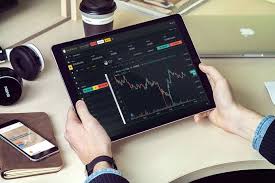CFD trading has been gaining immense popularity in the financial world due to its flexibility and accessibility to global markets. If you are new to this type of trading, then you may find the idea of CFD trading confusing at first. This beginner’s guide will introduce you to the basics of CFD trading and how it works.
What is CFD Trading?
A Contract for Difference (CFD) is a financial derivative that allows traders to speculate on the price movements of markets that include currencies, stocks, indices, and commodities. Unlike traditional trading, CFD trading doesn’t involve buying or selling assets; instead, it allows you to trade on the difference between the current price and the price at which you open and close the contract.
How does CFD Trading Work?
CFD trading operates on a margin-based system where you only need to deposit a small percentage of the total trade value, known as a margin. Similar to leveraging, margins allow traders to magnify their trading positions, but it also poses a considerable risk of losing more than the initial investment. Traders should use Stop Loss orders to limit potential losses when trading CFDs.
Advantages of CFD Trading
In CFD trading, you don’t actually own the underlying asset, which means you don’t need to worry about the cost of buying and maintaining the asset. CFD trading also offers greater flexibility, allowing you to trade both long and short positions on a single platform. CFD brokers offer trading tools and resources that allow you to make better trading decisions such as live news feeds, charting tools, and economic calendars.
Risks of CFD Trading
Despite its advantages, CFD trading poses significant risks, and traders must be mindful of them. The most significant risk is leverage, where traders risk losing more than the initial capital, leading to a margin call. CFDs typically have higher spreads than traditional trading, resulting in higher transaction costs. CFD trading is also highly speculative, requiring traders to have a comprehensive understanding of the market’s dynamics before making any trades.
Choosing a CFD Broker
Choosing the right broker is crucial to the success of your CFD trading journey. Different brokers offer varying services, trading tools, and platforms, so it’s essential to choose a broker that aligns with your trading objectives and risk tolerance. Ensure that the broker you choose is regulated by a reputable financial regulatory authority and provides transparent pricing policies and sufficient liquidity for your trades.
Conclusion:
cfd trading offers an excellent platform for traders to enter the financial markets to speculate on price movements without actually owning the underlying asset. Before trading CFDs, it is crucial to gain a thorough understanding of the markets, the inherent risks, and choosing a reputable broker that aligns with your trading goals. While CFDs offer greater flexibility and accessibility, trading requires proper risk management, discipline, and patience to be successful.


